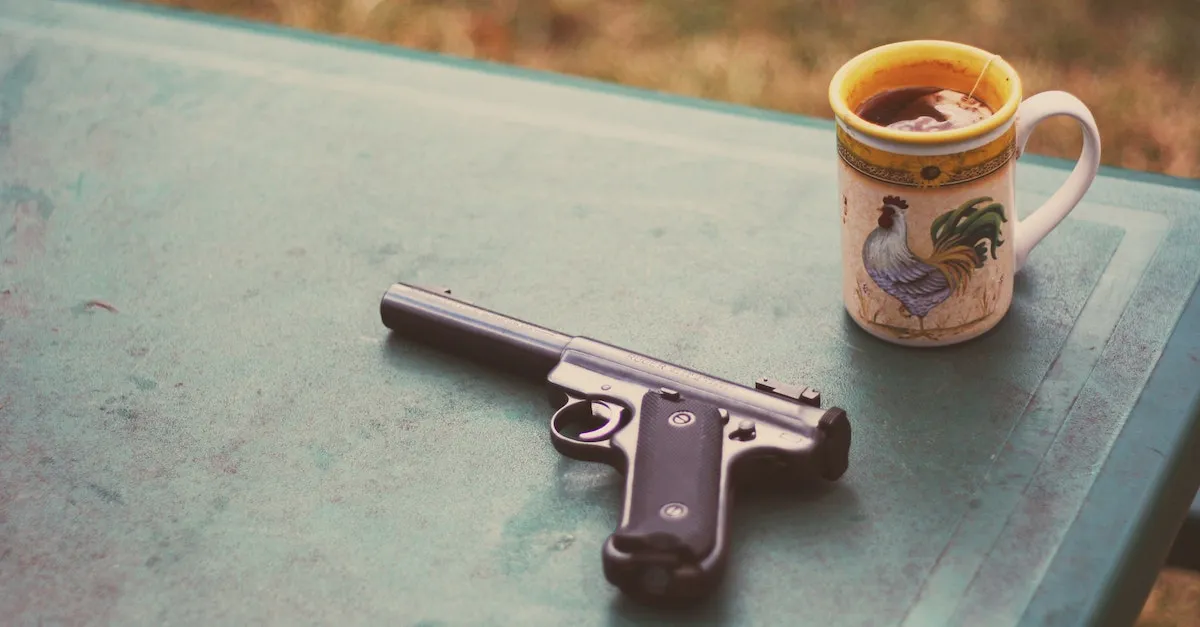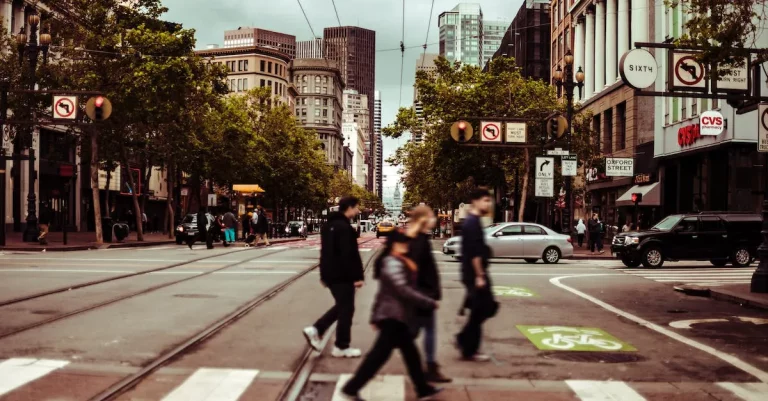What Disqualifies You From Owning A Gun In California
Owning a gun is a right and responsibility that millions of Americans exercise. But this right comes with limits, especially in states like California which have more restrictive gun laws than other parts of the country. If you’re wondering what might disqualify you from legally owning a firearm in California, read on for a comprehensive look at the various state and federal regulations that can strip away your gun rights.
Felony Convictions
When it comes to owning a gun in California, certain factors can disqualify individuals from possessing firearms. One of the most significant disqualifiers is a felony conviction.
Any felony conviction, even if expunged or reduced to a misdemeanor
California law clearly states that any individual who has been convicted of a felony, even if the conviction has been expunged or reduced to a misdemeanor, is prohibited from owning or possessing firearms.
This means that even if someone has gone through the legal process of having their felony conviction expunged or reduced, they are still unable to legally own a gun in the state.
It’s important to note that the California Department of Justice maintains a comprehensive database of individuals with felony convictions, which is used to enforce this restriction. So, even if an individual’s conviction is no longer on their official record, law enforcement will still have access to this information and can deny their application for a firearm.
Felony arrest warrant
In addition to felony convictions, having an outstanding felony arrest warrant is another disqualifier for gun ownership in California. If an individual has an active warrant for their arrest for a felony offense, they are legally prohibited from owning or possessing firearms.
This restriction is in place to ensure the safety of the public and to prevent individuals who are facing serious criminal charges from having access to firearms. It serves as a precautionary measure to reduce the risk of potential harm that could arise from an individual with an active felony warrant being in possession of a firearm.
It’s important for individuals to be aware of these disqualifiers and to understand the legal consequences of attempting to own or possess a gun while falling under any of these categories. Violating these restrictions can result in criminal charges and penalties.
To learn more about the specific laws and regulations regarding gun ownership in California, individuals can refer to the official website of the California Department of Justice: https://oag.ca.gov/firearms.
Misdemeanor Convictions
When it comes to owning a gun in California, certain misdemeanor convictions can disqualify individuals from exercising their Second Amendment rights. The state has implemented strict laws to ensure public safety and prevent firearms from falling into the wrong hands.
Let’s take a closer look at some misdemeanor convictions that can disqualify you from owning a gun in California.
Conviction for misdemeanor crimes of domestic violence
One of the key disqualifiers for owning a firearm in California is a conviction for misdemeanor crimes of domestic violence. This includes offenses like domestic battery, spousal abuse, or child abuse.
These convictions demonstrate a history of violent behavior and pose a significant risk to potential victims. Therefore, individuals with such convictions are prohibited from owning firearms.
Conviction for violating restraining or protective orders
Another disqualifying factor is a conviction for violating restraining or protective orders. These orders are put in place to protect individuals who have been victims of domestic violence, harassment, or stalking.
Those who have been found guilty of violating these orders have shown a disregard for the safety and well-being of others, making them ineligible to own firearms.
Conviction for stalking
A conviction for stalking is also a disqualifier for gun ownership in California. Stalking is a serious offense that involves a pattern of unwanted attention or harassment towards another person. As stalking behavior can escalate and potentially lead to violence, individuals convicted of this misdemeanor crime are prohibited from possessing firearms.
It’s important to note that these disqualifications are not exclusive to California and may vary in other states. To learn more about gun ownership laws and disqualifying factors in your state, it is advisable to consult local law enforcement or legal professionals.
Mental Health Issues
When it comes to owning a gun in California, certain mental health issues can disqualify individuals from gun ownership. These restrictions are in place to ensure public safety and prevent potential harm.
The state of California takes mental health concerns seriously and has implemented measures to identify individuals who may pose a risk to themselves or others.
Involuntary commitment to a mental health facility
If someone has been involuntarily committed to a mental health facility, it can disqualify them from owning a gun in California. This means that if a person has been deemed a danger to themselves or others and has been placed in a mental health facility against their will, they may lose their right to own a firearm.
The reasoning behind this restriction is to prevent individuals in the midst of a mental health crisis from accessing firearms and potentially causing harm.
Finding by a court of mental incompetence
A finding by a court of mental incompetence can also disqualify someone from owning a gun in California. If a court determines that an individual lacks the mental capacity to manage their own affairs, it raises concerns about their ability to responsibly own and handle firearms.
This restriction is in place to protect individuals who may be vulnerable due to mental health issues and to prevent potential accidents or harm caused by those who are mentally unfit to possess firearms.
Not guilty by reason of insanity ruling
Individuals who have been found not guilty by reason of insanity can also be disqualified from owning a gun in California. This ruling indicates that a person committed a criminal act but was deemed legally insane at the time.
The concern is that individuals who have previously demonstrated a lack of mental stability may pose a risk if allowed access to firearms. This restriction helps to ensure the safety of both the individual and the community.
It is important to note that these restrictions are in place to prioritize public safety and prevent potential harm. By disqualifying individuals with certain mental health issues from gun ownership, California aims to strike a balance between protecting individual rights and safeguarding the well-being of its citizens.
Substance Abuse
When it comes to owning a gun in California, there are certain disqualifications that individuals must be aware of. One of these disqualifications is a history of substance abuse. The state takes this issue seriously, as it recognizes the potential dangers of allowing individuals with substance abuse problems to possess firearms.
Multiple DUI convictions within a certain timeframe
In California, multiple DUI (Driving Under the Influence) convictions within a certain timeframe can disqualify an individual from owning a gun. This is because repeated DUI offenses suggest a pattern of dangerous behavior and a disregard for public safety.
The state aims to prevent individuals with a history of alcohol-related offenses from having access to firearms, which could potentially exacerbate their risky behavior.
According to recent statistics, California has seen a rise in DUI cases over the past few years. In 2019 alone, there were over 125,000 DUI arrests in the state. This highlights the seriousness of the issue and the need for stricter regulations to ensure public safety.
Adjudicated for being addicted to controlled substances
Another disqualification related to substance abuse in California is being adjudicated for being addicted to controlled substances. This means that if an individual has been legally determined to be addicted to drugs or other controlled substances, they are prohibited from owning a gun.
It is important to note that this disqualification is not based on mere suspicion or hearsay, but rather on a formal legal determination. This ensures that individuals who have a documented history of substance abuse and addiction are not allowed to possess firearms, minimizing the potential risks associated with their addiction.
For more information on the disqualifications for owning a gun in California, you can visit the official website of the California Department of Justice: https://oag.ca.gov/firearms. Here, you can find detailed information on eligibility requirements and disqualifying factors, helping you stay informed and compliant with the state’s laws.
Domestic Violence
When it comes to owning a gun in California, there are certain disqualifications that individuals must be aware of. One of the disqualifying factors is a history of domestic violence. The state has implemented strict laws and regulations to protect victims and prevent those with a history of domestic violence from obtaining firearms.
Subject to a restraining or protective order
If an individual is subject to a restraining or protective order, it disqualifies them from owning a gun in California. These orders are put in place to protect victims of domestic violence and to ensure their safety.
It is essential to note that the disqualification applies regardless of whether the order was issued based on a misdemeanor or a felony offense.
Convicted of misdemeanor domestic violence
In addition to being subject to a restraining or protective order, being convicted of misdemeanor domestic violence also disqualifies individuals from owning a gun in California. This disqualification applies to individuals who have been convicted of domestic violence offenses, even if they were only misdemeanors.
The state takes domestic violence seriously and aims to prevent potential harm by restricting firearm ownership for those convicted of such offenses.
It is crucial for individuals to understand and abide by these disqualifications to ensure compliance with the law. Domestic violence is a serious issue, and preventing those with a history of violence from owning guns is one way to help protect potential victims.
Immigration Status
When it comes to gun ownership in California, your immigration status can disqualify you from owning a gun. The state has specific laws in place to regulate gun ownership for individuals who are illegal aliens or nonimmigrant aliens.
Illegal Alien
Illegal aliens, also known as undocumented immigrants, are not eligible to own firearms in California. According to the California Department of Justice, individuals who are in the country illegally are prohibited from possessing, receiving, or owning firearms.
This is in accordance with federal law, which prohibits firearm possession by persons who are unlawfully present in the United States.
If you are an illegal alien and you are found in possession of a firearm, you can face serious legal consequences, including criminal charges and deportation. It is important to understand and respect the laws regarding gun ownership in California, regardless of your immigration status.
Nonimmigrant Alien
Nonimmigrant aliens, such as tourists or temporary visa holders, also face restrictions when it comes to gun ownership in California. According to the California Department of Justice, nonimmigrant aliens who are admitted to the United States under a nonimmigrant visa are generally prohibited from possessing firearms.
There are some exceptions to this rule, such as nonimmigrant aliens who have obtained a valid hunting license or who have a valid firearm permit issued by the state. However, it is important for nonimmigrant aliens to familiarize themselves with the specific laws and regulations surrounding gun ownership in California to ensure compliance.
It’s worth noting that these restrictions are in place to ensure public safety and prevent individuals who may pose a risk from obtaining firearms. If you have any questions or concerns about your eligibility to own a gun in California based on your immigration status, it is recommended to consult with legal professionals or relevant authorities for accurate and up-to-date information.
Age Requirements
In California, there are strict age requirements when it comes to owning a gun. It is important to be aware of these requirements to ensure that you are in compliance with the law. Here are the age restrictions for owning different types of firearms:
Under 18 years old for rifles/shotguns
If you are under the age of 18, you are not eligible to own a handgun in California. However, there are certain exceptions for rifles and shotguns. According to the law, individuals who are 16 or 17 years old can possess a rifle or shotgun as long as they have the written consent of a parent or legal guardian.
This consent must be kept on file and presented to law enforcement if requested.
Under 21 years old for handguns
When it comes to handguns, the age requirement is even stricter. In California, you must be at least 21 years old to purchase or possess a handgun. This applies to both private sales and purchases from licensed dealers.
It is important to note that this age restriction also applies to carrying a concealed handgun in public.
It is crucial to understand and abide by these age requirements to avoid any legal consequences. Remember, the laws surrounding gun ownership are in place to promote safety and prevent firearms from falling into the wrong hands.
Other Disqualifiers
Dishonorable military discharge
One of the disqualifiers that prevents individuals from owning a gun in California is having a dishonorable military discharge. This means that if someone served in the military and was discharged under dishonorable conditions, they are prohibited from owning a firearm.
The rationale behind this disqualification is to prevent those with a history of serious misconduct or criminal behavior from accessing firearms, ensuring public safety. It is important to note that this disqualification applies specifically to dishonorable discharges and not to other types of military discharges.
Renounced U.S. citizenship
Renouncing U.S. citizenship is another factor that disqualifies individuals from owning a gun in California. If someone voluntarily renounces their U.S. citizenship, they lose certain rights and privileges, including the right to possess firearms.
This disqualification is in place to ensure that those who have chosen to no longer be citizens of the United States are not able to possess firearms, as they are no longer subject to the country’s laws and regulations.
It is worth noting that these are just a couple of examples of disqualifiers for gun ownership in California. There are additional factors that can disqualify individuals, such as being convicted of certain crimes, having restraining orders, or being deemed mentally unstable.
It is important to consult the official California Department of Justice website or seek legal advice to fully understand the disqualifications and eligibility criteria for gun ownership in the state.
Conclusion
California has some of the strictest gun laws in the nation, with numerous state and federal restrictions that can disqualify someone from legally owning firearms. While law-abiding citizens have the right to bear arms, this right is not absolute – certain criminal convictions, mental health issues, restraining orders, immigration status, young age, and other factors can result in a denial when purchasing guns in California. Understanding what makes you ineligible to own guns is important for all prospective firearm buyers in the state.








